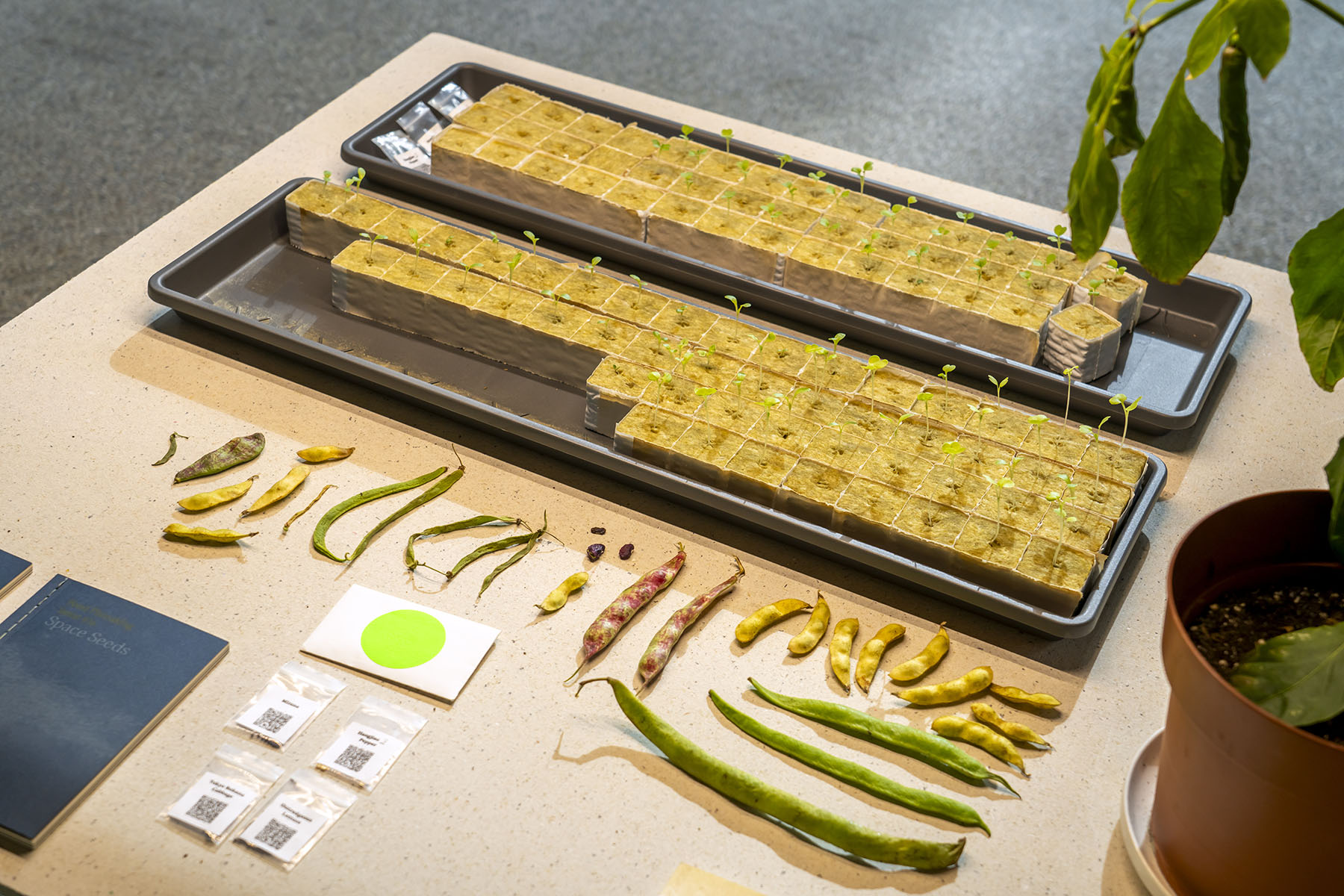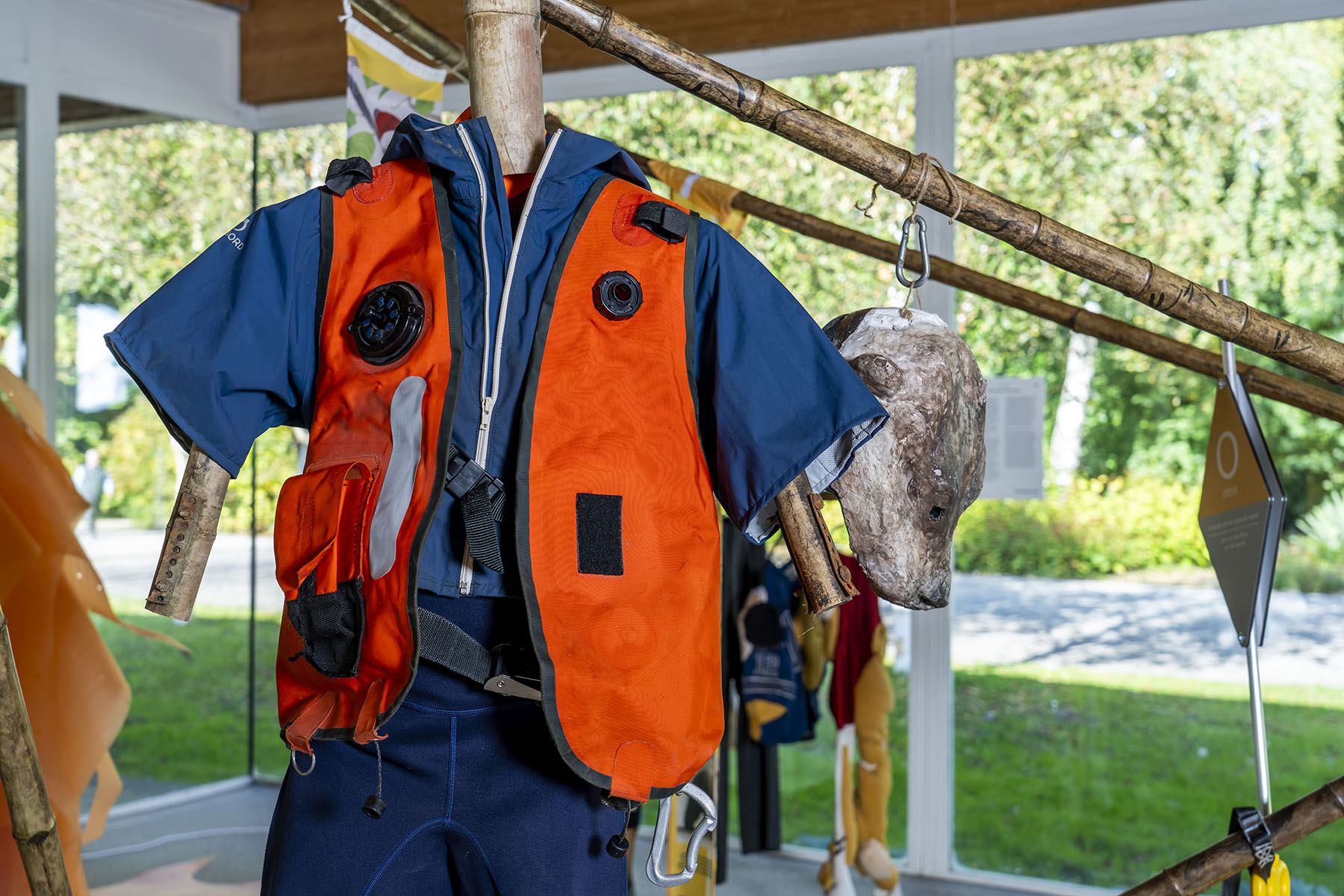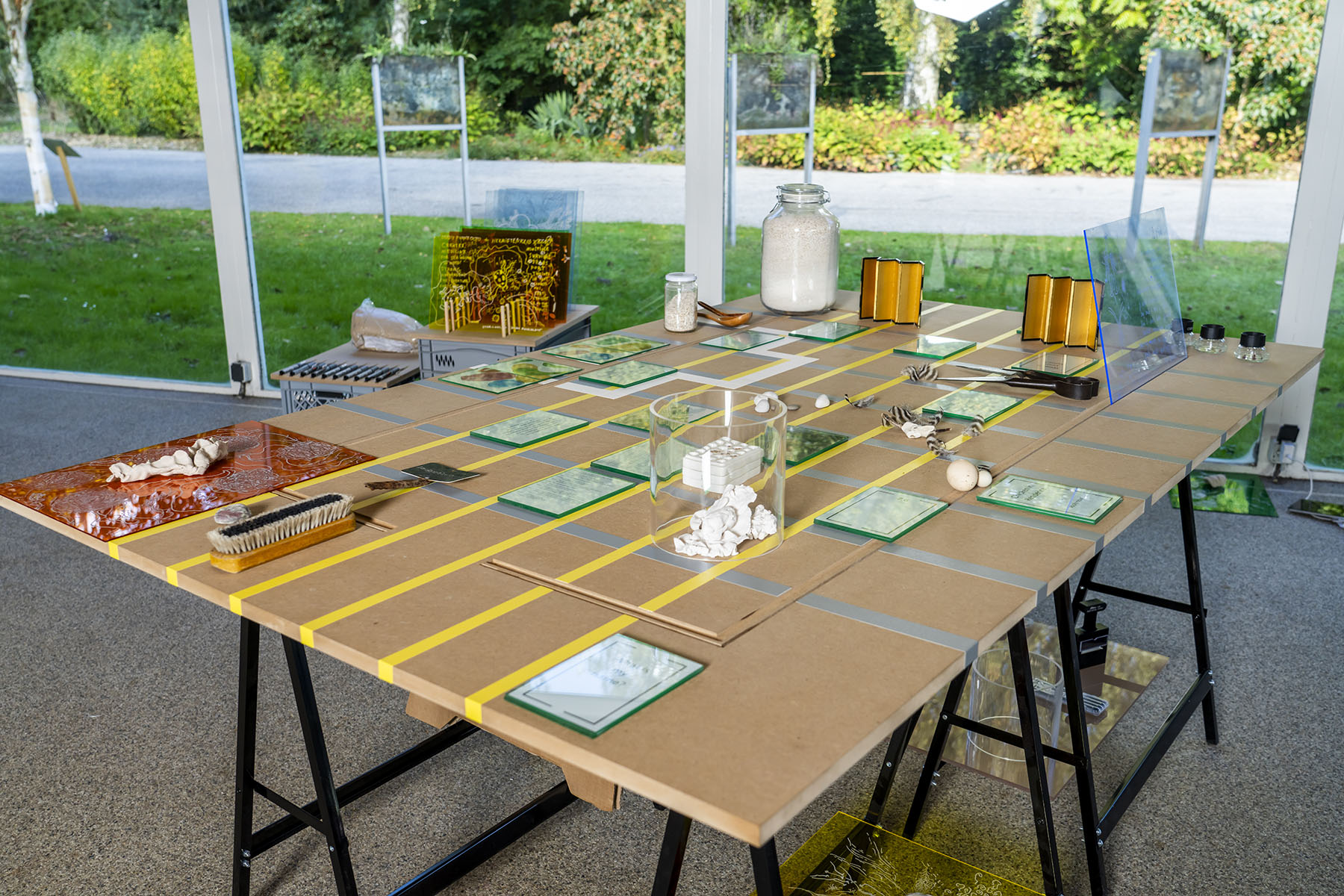Amsterdam is home to almost 1 million people. But besides people, there are trillions of other creatures: plants, animals, insects, who each run their lives in the city in their own way. How do we deal with a city of trillions of lives instead of 1 million inhabitants? During Future Gardening: gardening as artistic practice for multispecies worldbuilding, we practice alternative scenarios for multispecies politics of the city. The various artist gardens of Zone2Source form a micro world where artists take people along in experimenting with alternative experiences and ways of doing things that are necessary for life on a shared earth.
Throughout time, many artists have been inspired by the garden and have depicted it in different ways, expressing changing societal beliefs and philosophies on mankind’s relation to nature. Contemporary artists not only work to present new representations and imaginations, but employ gardening itself as an artistic strategy stemming from a desire to actively reshape our relationship with (the) earth. If we no longer view the garden as a blank canvas on which to project our plans, but instead as a space filled with life, how do we then shape gardening as a co-creative intervention? What experiences, languages and behaviours are needed to tend and adapt to our environment, instead of controlling and manipulating it? How do we deal with public space – design, planning, maintenance – from a position of radical inclusivity in which we listen to all voices in the city, and what does eating and being eaten mean from a multispecies solidarity?
We invited the artists of our three ongoing artist gardens – de Onkruidenier, Genomic Gastronomy and Theun Karelse – to develop a growing exhibition of art works that relate to gardening as artistic practice with manifold relations to the project gardens in the park, activated by a series of events, talks and workshops.
Genomic Gastronomy (Cathrine Kramer and Zack Denfeld)
The Center for Genomic Gastronomy is an artist-led think tank launched in 2010 by Cathrine Kramer and Zack Denfeld. They present their research on organisms and environments manipulated by human food cultures in the form of public lectures, research publications, meals and exhibitions. Since spring 2024 they run the Genomic Gastonomy Garden in the Amstelpark.
Permapractices on Earth and in Space consists of two installations and plant collections – Satellite Seed Savers and Permagarden Variations – and a series of public events which will inform how the Genomic Gastronomy Garden in the Amstelpark will develop in the following years. This artistic research explores the seed varieties, growing conditions and unexpected guests that shape human approaches to gardening in outer space and here on earth, and how these inform one another.

Permagarden Variations
Stephen Barstow is a plant collector and wild forest gardener in Trondheim, Norway. Stephen’s garden is constantly in flux, with new plants appearing each year, along with diverse species of birds and insects. This installation contains an in-progress video documentary, following Stephens garden four seasons of the year. It focuses on summer and autumn, presented together with perennial plants from his collection, which will be transplanted to the Genomic Gastronomy Garden at the end of the exhibition.
Satelite Seed Savers
Satellite Seed Savers is a post-national seed saving programme that collects, distributes and preserves the agricultural biodiversity of off-planet plants. Through seed swap pop-ups and Satellite Seed Saver gardens, a network of gardeners, communities and enthusiasts are mobilised to grow and interpret the seeds of edible plants that have been cultivated or eaten in space. This installation features a collection of growing plants from the Satellite Seed Saver collection as well as documentation and ephemera from previous iterations of the project in various places around the world.
Theun Karelse
After studying visual art at the Sandberg Institute in Amsterdam Theun Karelse joined FoAM, an international network of transdisciplinary laboratories operating at the intersection of art, science, nature and everyday life. As an artist, he develops projects and research programs around landscapes such as Machine Wilderness which he collaborated on with Zone2Source since 2015. Over the past 15 years, Karelse has set up three large urban gardens in Amsterdam West and supported ecosystem and landscape restoration projects in Europe, India and Africa.At Zone2Source, he has been working on ‘Otterdam’, a floating garden in the pond of the Amstelpark, since spring 2024.

Landscape of Sentience
Landscape of Sentience brings together examples of Karelse’s practice in reconnecting with what writer Paul Kingsnorth describes as ‘the great conversation among life’. Observing how easily seaweed adapts to every change in the water, Karelse created a seaweed suit to try to tap into that quality of seaweed life as a permanent dance within itself. The installation will also feature a very early suit that the artist made with the help of prosthetists and tailors to explore the wisdom of the elephant.
Landscape of Sentience particularly focusses on the otter as a guide. In 2021, this iconic water creature returned to Amsterdam, at a time of unprecedented drought and extreme rainfall a messenger calling us to rethink our relationships to water. To celebrate her return, Karelse developed Otterdam, a floating garden in the Amstelpark pond since June 2024.
Landscape of Sentience is a growing installation constructed from old bamboo canes from which the first version of Otterdam was built and on which algae have left their mark. In the course of the exhibition, notes, drawings, videos and objects will be added, exploring themes and cosmologies in relation to Otterdam, as well as the results of the Ghost Gardening workshop. Landscape of Sentience shows Theun Karelse’s practices in which the key to practising gardening is the awareness that a garden is a community of life forms, and being part of a community begins with tuning in.
De Onkruidenier and Samar Nasrullah Khan
Artist collective de Onkruidenier, founded in 2013, consists of Jonmar van Vlijmen, Rosanne van Wijk and Ronald Boer. The collective investigates historical, cultural and potential transformations of nature and its potential to evolve humans. They do fieldwork – often in conjunction with audiences – collecting plants, the stories and histories associated with them. As ecosystem futurists, they speculate on aquatic culture to arrive at new interpretations of the relationship between humans and (urban) nature, both above and below sea level. An important role is played here by questioning systems that are usually taken for granted. In the development of their work, interactions with the public and experts such as farmers, residents and scientists create new stories.
Samar Nasrullah Khan is a researcher whose art and design practice follows from observations gained through multi-species ethnographies.

Speculative Taxonomy
In Speculative Taxonomy, de Onkruidenier and philosopher and artist Samar Nasrullah Khan explore how radical observation in the garden can make people more aware of how we as humans are intertwined with our environment. The mobile toolkit Speculative Taxonomy revolves around a performative workshop in the Shadow Garden, in which ecology and imagination are coming together.
As part of Future Gardening, existing forms of categorisation are questioned. The speculative drawings made in the workshops will be added to a virtual herbarium and displayed in the exhibition. To this end, the Shadow Garden will be installed as a scale model in the exhibition in the form of a reference table.
The table contains 49 compartments that correspond to the grid of the garden, in which a composition of objects tells stories and asks questions about the ecosystem of the Shadow Garden. This provides insight into this ongoing research into a transformative classification system in which other nature-culture stories emerge.
Read the exhibition brochure here